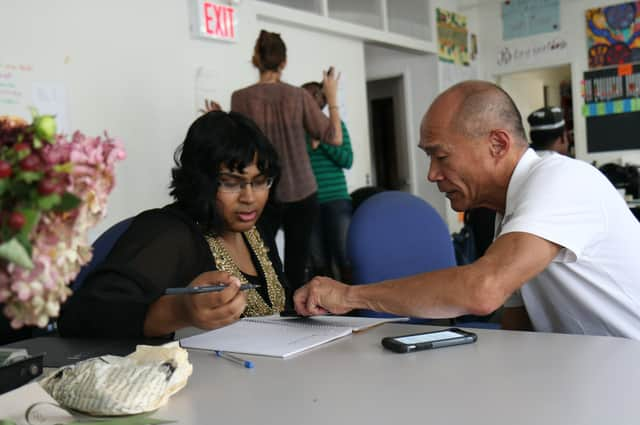SME apprenticeships under threat due to cost-of-living burdens


But more than half (51 per cent) of UK small and medium-sized enterprises (SMEs) have axed plans to take on apprentices because of the cost-of-living crisis, according to new research unveiled today by Vodafone Business.
Vodafone Business polled more than 1,000 SME business leaders across the UK and found of the 60 per cent of firms who have taken on apprentices in the past, a worrying 51 per cent had axed their schemes because of soaring business costs including energy and transport.
Advertisement
Hide AdAdvertisement
Hide AdThe findings have been announced as Vodafone Business today launches a partnership with Multiverse, using funds from Vodafone’s Apprenticeship Levy, to upskill UK SME employees.


Vodafone Business will provide small businesses with £18,000 each to upskill existing employees via a pilot partnership with Multiverse. The scheme will see Vodafone offering SMEs the opportunity to apply for and secure a fully funded place on Multiverse’s Business Transformation Fellowship where UK employees will receive training and accreditation alongside their current roles.
The UK government introduced the apprenticeship levy in 2017. Organisations with a salary bill in excess of £3 million must put 0.5% of their total wage costs into the apprenticeship levy which is uses to fund apprentices or equivalent work-based learning programmes across critical disciplines such as cloud, Cyber, data DevOps, digital marketing, software development, and more.
More work is required to educate SMEs on the options available to them regarding apprenticeships opportunities; as 44% of SMEs were unaware of the various financial support packages available to them via third-party schemes, with the Government and larger businesses helping to pick up the tab to enable small businesses to bring on new staff or provide training opportunities to upskill their workforce, which could help to fill other roles within the business and better trained and more motivated staff.
Advertisement
Hide AdAdvertisement
Hide AdBetter awareness of these schemes could help address some of the challenges Vodafone Business research has unveiled as 21% of SMEs said this level of support would help sway them into taking on an apprentice for their business.


Additional findings in the report also found:
20 per cent of SMEs suggested they didn’t know how to go about hiring an apprentice, whilst 21 per cent suggested that they simply couldn’t afford one.
48 per cent of those cite higher business running costs due to the cost-of-living crisis as the main barrier, 30 per cent blame the increased energy bills for heating, lighting and running equipment and 21 per cent say increased staff wages are the reason.
Nick Gliddon, Business Director, Vodafone UK said: “Our research shows just how much support is required from both big businesses and Government to ensure that SMEs can take on apprentices or offer up-skilling programmes to existing staff. With SMEs making up 99.9% of all businesses, they are crucial to our economy and have an important role to play in providing the UK workforce with viable opportunities, training and skills.
Advertisement
Hide AdAdvertisement
Hide Ad“SMEs are often forgotten when discussions about apprenticeships take place and barriers, like costs and time, make it harder for them. At Vodafone Business our focus is to make life easier for businesses, so we have launched a new scheme in partnership with Multiverse for SMEs to fund their apprenticeship programmes. This will help people of all ages and backgrounds have the opportunity to learn and develop new skills.”
Jeremy Duggan, President of Multiverse said: “Ensuring the right digital skills are in place is essential for any business, and apprenticeships schemes are simply the best way to deliver these through applied, on-the-job learning. As SMEs reckon with market forces, Vodafone’s donation will enable small businesses to invest in their people, develop to their full potential and unlock growth, through the creation of these apprenticeship programmes.”